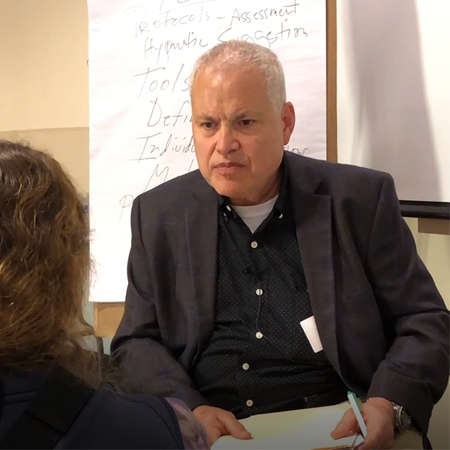As a licensed board-certified clinical psychologist, I have a deep understanding of pain and pain management. I myself have had to work through my own chronic pain symptoms, and I am passionate about helping my patients through theirs. Since 1991, I have provided patients with the counseling, psychotherapy, clinical hypnosis and hypnotherapy services they needed to tame their persistent physical and emotional pain. If you are suffering from chronic pain, I can help you cope more effectively and learn how to manage your chronic pain and associated emotional stress with less strain.
When we are continually fighting with persistent pain, it drains us and can take away from the experience of truly living. As I am a Ph.D. psychologist and not an MD, I utilize methods to enable you to cope with your symptoms more effectively and comfortably without the influence of drugs. These methods include education, talk therapy, guidance counseling, problem solving therapy, cognitive behavioral therapy, relaxation therapy, energy healing, and clinical hypnosis and hypnotherapy.
When we work together in a Pain Management Psychotherapy(PMP) session or in a Pain Control Hypnosis (PCH) session, here is what you can expect. A typical session will last 50 minutes, and extended sessions will last 90 minutes. Our first visit is an initial consultation wherein I will evaluate your pain, your goals and objectives, your needs, and your prior experiences with attempting to manage your pain. This will provide me with the information necessary to formulate an individualized treatment plan.
The areas I commonly address with patients include but are not limited to the following:
- Safe and effective non-drug methods to manage pain, such as hypnosis.
- Exploring any depression or anxiety you may be experiencing that heightens your pain.
- Introducing and teaching pain management strategies.
- Teaching effective relaxation, meditation, and self-hypnosis skills.
- Education about the safe and proper use of pain medication
- Exploring and treating any anger, shame, and feelings of isolation and/or alienation.
- Improving your interpersonal relationships,
- Teaching effective means of dealing with family tension.
- Addressing any substance abuse issues which you may be having.
- Resolving emotional issues that may be exacerbating your persistent pain.
If you have been unable to find an effective way to deal with your ongoing pain, and you have had appropriate medical workups, and treatment, then Pain Management Psychotherapy and Pain Control Hypnosis may provide the solutions you need.
If you would like to learn more about this practice or would like to schedule a free consultation appointment, visit us online or call our office today at (561) 377-1039.
Dr. Eimer is a licensed board-certified clinical psychologist and certified hypnotherapist who proudly serves patients in West Palm Beach, Wellington, Lake Worth, Boynton Beach, Delray Beach, Boca Raton, Deerfield Beach, Fort Lauderdale, Miami, and surrounding areas.







